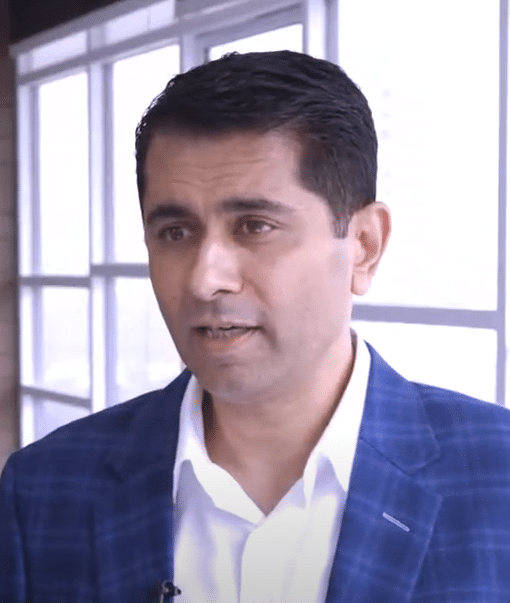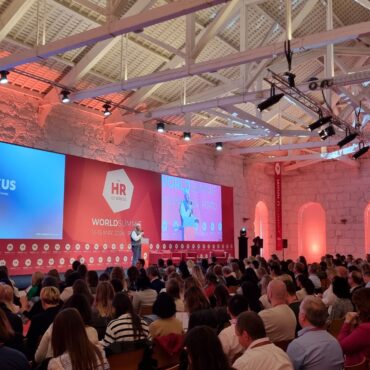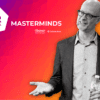
Aligning Total Rewards with Culture and Performance: Insights from Bayer’s Transformation Journey
today2023.05.03. 226

WHY SHOULD YOU CARE?
In a recent conversation, Rahul Kalia, the Global Head of Performance, Culture, and Future of Work at Bayer, who will also be speaking at the HORIZON SUMMIT in Amsterdam, emphasized the importance of aligning total rewards with performance management and culture. In this article you may read about how Bayer overhauled their HR strategy, tying total rewards to their performance management philosophy to differentiate performance, reward top performers and motivate others to give their best.

Traditional organizational structures tend to view talent management and total rewards separately while culture is an independent entity, but he believes that in order to bring about systemic change and create a high-performing culture these three areas need to work hand-in-hand.
When Bayer was developing their HR strategy, it found the same pain points across divisions, with decision-making, empowerment, and accountability being among them. Kalia mentioned: “The whole organization was going through transformations across divisions at once – yet everyone was talking about decision-making empowerment accountability”. He suggested tackling one at a time would impede systemic changes; therefore total rewards were tied into the performance management philosophy in order to differentiate performance by rewarding top performers while encouraging others to give their best effort.
Bayer boasts a robust value-based system and clear goals, and Kalia emphasizes the significance of creating an employee-motivating culture within Bayer. He noted: “To truly make a difference we need to motivate people to give their best.” He acknowledged that culture is often dictated by immediate managers rather than by employees themselves, so creating one with influences employees toward a common goal must be paramount.
In order to personalize motivation and understand what drives different people in different organizations, they began by focusing on the leadership of the organization and understanding its mindset shift needs while making leaders accountable for their behavior. They then worked on “Heartbreakers”, such as performance management and reward systems; it soon became evident that without adapting these drivers for agile team structures it would be difficult to be successful.
Bayer has been working towards transitioning away from a scarcity model and toward one characterized by abundance, in which people are encouraged to do their best rather than simply share out compensation equally. Kalia believes attracting and retaining talent is of critical importance in today’s rapidly changing environment; talent management requires investing in employee development as one way of making a difference in Bayer’s success.
Being a multinational organization, each country presents unique circumstances and cultures that have an effect on the overall culture of an organization. Some of the challenges include:
- Cultural differences: Every country has its unique culture, customs, and practices, which can differ significantly from those of other countries. These differences can affect how employees perceive and interact with each other, making it difficult to build a unified company culture that resonates across borders.
- Communication barriers: Different countries have different languages and communication styles, which can make it challenging to communicate effectively across different teams and locations. Language barriers can lead to misunderstandings, misinterpretations, and lack of clarity, which can cause conflicts and hinder teamwork.
- Regulatory differences: Every country has its legal and regulatory framework, which can affect the way a company operates. Dealing with different regulations, laws, and compliance requirements in different countries can be challenging and can affect the overall culture of the organization.
- Time zone differences: Multinational organizations often have teams and employees spread across different time zones, making it difficult to coordinate work and communication effectively. This can lead to delays, missed deadlines, and increased stress levels, which can affect the overall culture of the organization.
- Talent acquisition and retention: Recruiting and retaining top talent in different countries can be challenging, especially when there are cultural and language differences. Retaining employees can also be difficult due to different laws, regulations, and labor practices in different countries. This can lead to a lack of consistency in the workforce, affecting the overall culture of the organization.
Managing these challenges requires a deliberate effort to build a culture that is inclusive, respectful, and flexible enough to adapt to different cultural contexts. It also requires strong leadership, effective communication, and a willingness to learn and adapt to new cultures and ways of working.
To hear firsthand how people feel, Employee Listening also plays a major part in the company’s employee experience improvement efforts. Bayer conducts regular employee voice surveys with an impressive global participation rate of 80% from employees worldwide. They analyzed and shared their results with their leadership teams, and leaders were then required to consult their employees, develop an action plan, and share it with them. Progress was regularly monitored while holding leaders accountable for making necessary changes. As Kalia stated: “Transparency plays an equally vital role. Our surveys include clear questions regarding which recent survey results were discussed by our Manager and Data Manager as well as any actions they took based on previous survey results, and published reports for every team, thus creating more transparency.”
Bayer also has shifted from “consequence management” to “result management” by personalizing motivation, working on leadership development, creating accountability measures, and making any necessary adjustments that aligned with agile team structures – thereby moving from consequence management to managing for results.
As a head of global performance, culture, and future of work, Kalia’s duties encompass cultural transformation, performance management, future of work planning, leader expectations, and talent development and implementation across three pillars: cultural transformation, performance management, the future of work planning, and leader expectations. However, he quickly points out that another team exists responsible for talent development and implementation at regional locations; this team implements Kalia’s team culture into reality while freeing him up to focus on more important matters related to transformation, performance management, and future work planning. By delegating implementation to an external team he can devote his attention and focus more effectively towards other pillars: cultural transformation performance management and the future of work planning while Kalia can focus on other broader aspects related to cultural transformation performance management and the future of work as a whole.
Kalia stressed the significance of developing new capabilities within an organization to facilitate any transformation program, as he described: “Our objective is to build new capabilities within our organization so that people are better adaptable to an ever-evolving environment; tolerance of ambiguity with structures is essential, stability will no longer exist like before; I like to call this mindset of our giant organizations as being that of startups.”
Culture encompasses all other aspects of performance and future work. Therefore, cultural transformation and change must be approached holistically as cultural change isn’t a one-time project but an ongoing journey.
While in his previous role in crop science. they experimented to foster talent development within the organization by giving young employees opportunities to make complex decisions early in their careers. Kalia notes this was a challenge because there often exists a single, centralized authority that makes all the decisions. Kalia’s team was able to overcome this hurdle by organizing cross-functional, cross-country teams to brainstorm solutions to challenges presented by the leadership team. Once selected, the best ideas were further refined through an intensive 12-week structured program before becoming funded and implemented.
The experiment was very successful; they ran 20 projects on digital innovation across APAC using this approach. Furthermore, their leadership team became more comfortable empowering young talent to make decisions and the organization saw positive effects as a result of it all. Kalia acknowledges there were challenges associated with her approach, noting how too much innovation without structure can lead to chaos. Kalia explained, “We want decision-making closer to responsibility – but as an organization like ours that builds systems and processes as safety nets.” Even when given the freedom to experiment and jump from the first floor without a safety net, most will lack the confidence necessary to do it successfully. Therefore, Kalia emphasizes the significance of creating an experimentation framework and having a purpose behind experimentation.
As now this experimentation is going at a global scale soon, this story will further be unfolded at the HORIZON Summit in Amsterdam, where Kalia will bring an insightful case study on the progress and result.
Cultural transformation is an ongoing journey that requires effort, open-mindedness, and willingness to experiment in order to succeed. At the same time, structure must be employed so as to keep an organization moving in the correct direction. Building a high-performance culture requires a comprehensive approach, patience, experimentation, and transparency, however as Henry Ford put it “If there is a will, there is a way”!

Written by: Mihaly Nagy
Culture Future of Work HR Strategy Performance Management Strategy & Transformation total reward
Previous post

- 497
labelArticles today2023.04.27.
AXA XL’s Hybrid Working Success: A Blueprint for Creating a Thriving Work Culture
WHY SHOULD YOU CARE? AXA XL’s successful implementation of hybrid working involved identifying different employee personas and addressing their unique needs. The company adopted policies and benefits based on employee [...]
Similar posts

labelFeatured today2024.05.22.
Reflections from The HR Congress World Summit 2024: Elevating the Future of Work

- 226






Post comments (0)